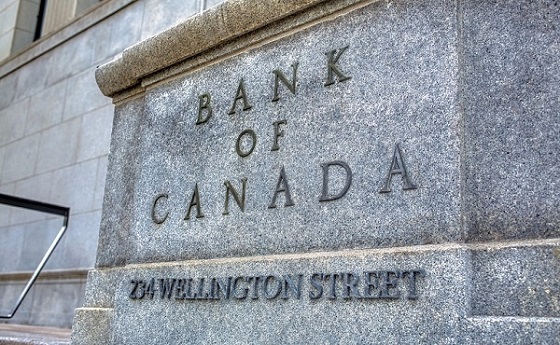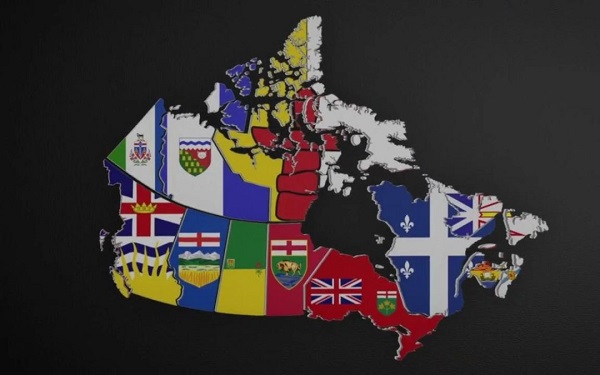Business
When politicians gamble, taxpayers lose

From the Canadian Taxpayers Federation
Author: Jay Goldberg
Trudeau and Ford bragged about how a $5 billion giveaway to Honda is going to generate 1,000 jobs. In case you’re thinking of doing the math, that’s $5 million per job.
Politicians are rolling the dice on the electric vehicle industry with your money.
If they bet wrong, and there’s a good chance they have, hardworking Canadians will be left holding the bag.
Prime Minister Justin Trudeau and Premier Doug Ford announced a $5-billion agreement with Honda, giving another Fortune 500 automaker a huge wad of taxpayer cash.
Then Trudeau released a video on social media bragging about “betting big” on the electric vehicle industry in Canada. The “betting” part of Trudeau’s statement tells you everything you need to know about why this is a big mistake.
Governments should never “bet” with taxpayer money. That’s the reality of corporate welfare: when governments give taxpayer money to corporations with few strings attached, everyday Canadians are left hoping and praying that politicians put the chips on the right numbers.
And these are huge bets.
When Trudeau and Ford announced this latest giveaway to Honda, the amount of taxpayer cash promised to the electric vehicle sector reached $57 billion. That’s more than the federal government plans to spend on health care this year.
Governments should never gamble with taxpayer money and there are at least three key reasons why this Honda deal is a mistake.
First, governments haven’t even proven themselves capable of tracking how many jobs are created through their corporate welfare schemes.
Trudeau and Ford bragged about how a $5 billion giveaway to Honda is going to generate 1,000 jobs. In case you’re thinking of doing the math, that’s $5 million per job.
Five million dollars per job is already outrageous. But some recent reporting from the Globe and Mail shows why corporate welfare in general is a terrible idea.
The feds don’t even have a proper mechanism for verifying if jobs are actually created after handing corporations buckets of taxpayer cash. So, while 1,000 jobs are promised through the Honda deal, the government isn’t capable of confirming whether those measly 1,000 jobs will materialize.
Second, betting on the electric vehicle industry comes with risk.
Trudeau and Ford gave the Ford Motor Company nearly $600 million to retool a plant in Oakville to build electric cars instead of gasoline powered ones back in 2020. But just weeks ago, Ford announced plans to delay the conversion for another three years, citing slumping electric vehicle sales.
Look into Ford’s quarterly reports and the danger of betting on electric vehicles becomes clear as day: Ford’s EV branch lost $1.3 billion in the first quarter of 2024. Reports also show Ford lost $130,000 on every electric vehicle sold.
The decline of electric vehicle demand isn’t limited to Ford. In the United States, electric vehicle sales fell by 7.3 per cent between the last quarter of 2023 and the first quarter of 2024.
Even Tesla’s sales were down 13 per cent in the first quarter of this year compared to the first quarter of 2023.
A Bloomberg headline from early April read “Tesla’s sales miss by the most ever in brutal blow for EVs.”
There’s certainly a risk in betting on electric vehicles right now.
Third, there’s the question of opportunity cost. Imagine what else our governments could be doing with $57 billion?
For about the same amount of money, the federal government could suspend the federal sales tax for an entire year. The feds could also use $57 billion to double health-care spending or build 57 new hospitals.
The solution for creating jobs isn’t to hand a select few companies buckets of cash just to lure them to Canada. Politicians should be focusing on creating the right environment for any company, large or small, to grow without a government handout.
To do that, Canada must be more competitive with lower business taxes, less red tape and more affordable energy. That’s a real recipe for success that doesn’t involve gambling with taxpayer cash.
It’s time for our politicians to kick their corporate welfare addiction. Until they do, Canadians will be left paying the price.
Business
Outrageous government spending: Canadians losing over 1 billion a week to interest payments

 By Franco Terrazzano
By Franco Terrazzano
Massive borrowing, soaring interest charges unacceptable
The Canadian Taxpayers Federation is calling on the federal government to cut spending following Thursday’s Parliamentary Budget Officer report showing debt interest charges cost taxpayers $54 billion in 2024-25.
“The PBO report shows debt interest charges cost taxpayers more than $1 billion every week,” said Franco Terrazzano, CTF Federal Director. “Massive deficits mean interest charges cost taxpayers more than the feds send to the provinces in health transfers.”
The PBO projects the federal government’s deficit to be $46 billion in 2024-25.
Interest charges on the federal debt cost taxpayers $54 billion in 2024, according to the PBO’s Economic and Fiscal Monitor. For comparison, the federal government spent $52 billion through the Canada Health Transfer in 2024, according to the Fall Economic Statement. That means the government spent more money on debt interest payments than it sent to the provinces in health-care transfers.
A separate PBO report projects debt interest charges will reach $70 billion by 2029.
A recent Leger poll shows Canadians want the federal government to cut spending (45 per cent) instead of increasing spending (20 per cent) or maintaining current spending levels (19 per cent).
“Borrowing tens of billions of dollars every year is unaffordable and unacceptable,” Terrazzano said. “Canadians want
Business
Ottawa Slams Eby Government Over Chinese Shipyard Deal, Citing Security and Sovereignty Risks

 Sam Cooper
Sam Cooper
Western security analysts have warned that China’s commercial shipyards routinely serve dual-use purposes, supporting both civilian contracts and the expansion of the People’s Liberation Army Navy. A 2024 report by the Center for Strategic and International Studies warned that foreign customers contracting with Chinese state-owned shipbuilders may be inadvertently “subsidizing the growth of China’s naval power.”
Stung by a political firestorm over his provincial government’s decision to hand a massive shipbuilding contract to Chinese suppliers that critics say could bolster Xi Jinping’s military capabilities and undermine Canadian national security, B.C. Premier David Eby late Friday night reluctantly released a searing letter from federal Transport Minister Chrystia Freeland.
The letter, dated June 16 and addressed to B.C. Transportation Minister Mike Farnworth, expresses Freeland’s “consternation and disappointment” over BC Ferries’ decision to select China Merchants Industry Weihai—a subsidiary of a state-owned Chinese conglomerate closely tied to Beijing’s military-civil fusion strategy and Belt and Road Initiative—to build four new major vessels.
“I am dismayed that BC Ferries would select a Chinese state-owned shipyard to build new ferries in the current geopolitical context,” Freeland wrote. She demanded that Farnworth “verify and confirm with utmost certainty that no federal funding will be diverted to support the acquisition of these new ferries.”
Freeland emphasized that the Government of Canada has provided “long-standing financial support” to British Columbia’s ferry system, including “approximately $37.8 million” annually under a 1977 agreement, $308 million to cover pandemic-related operating losses, and “a $75-million loan to BC Ferries to help purchase four net-zero emission ferries.”
“Given the value of the contract and the level of taxpayer funding that has been provided to support BC Ferries’ operations,” Freeland wrote, “I am surprised that BC Ferries does not appear to have been mandated to require an appropriate level of Canadian content in the procurement or the involvement of the Canadian marine industry.”
The letter, which had been withheld by Eby’s government for nearly a week, was quietly released to the public just before midnight Eastern Time Friday—only after repeated demands in Parliament by Conservative MP Dan Albas, who posted on social media: “People deserve that transparency.”
The political backlash mounted swiftly following Eby’s disclosure of the deal with China. BC Conservative leader John Rustad accused Eby and BC Ferries of failing to account for the broader strategic risks of contracting with a Chinese state-owned entity during a period of rising global tensions.
“There’s lots of rhetoric going back and forth between the United States and China, friction with Taiwan,” Rustad told Postmedia. “Who knows what may happen? Hopefully nothing by 2029 to 2031, which is when these ships are going to start to be constructed and delivered.”
It’s not a far-fetched concern. During the COVID-19 pandemic, Prime Minister Justin Trudeau’s government entered into a vaccine partnership with CanSino Biologics—a company with links to China’s People’s Liberation Army—only for Beijing to block shipment of the vaccine, abruptly collapsing the deal.
In her June 16 letter, Freeland warned the B.C. government that “ongoing concerns regarding threats to security, including cybersecurity, from China” required urgent attention. She asked for clear commitments that BC Ferries had conducted “a robust risk assessment” and demanded to be informed of the steps being taken to “reduce the risks of outside influence or control from cybersecurity vulnerabilities,” and to “mitigate the risks that vessel maintenance and spare parts may pose.”
Freeland further linked the deal to Beijing’s retaliatory economic measures, writing, “China has imposed unjustified tariffs on Canada, including 100% tariffs on canola oil, meal, and pea imports, and a 25% duty on Canadian aquatic products and pork. These tariffs have affected about 36% of Canadian agriculture businesses and are directly impacting the livelihood of Canadians.”
China Merchants Industry Weihai is a subsidiary of China Merchants Group, a massive state-owned enterprise that has played a central role in advancing Beijing’s Belt and Road Initiative since 2013. The conglomerate operates ports and shipyards across Asia, Europe, and Africa—including strategic holdings in Greece, Lithuania, Nigeria, and Djibouti—and is a central player in the Chinese Communist Party’s military-civil fusion strategy.
Western security analysts have warned that China’s commercial shipyards routinely serve dual-use purposes, supporting both civilian contracts and the expansion of the People’s Liberation Army Navy. A 2024 report by the Center for Strategic and International Studies warned that foreign customers contracting with Chinese state-owned shipbuilders may be inadvertently “subsidizing the growth of China’s naval power.”
Valued in the hundreds of millions, the contract will see the Chinese yard begin delivering the vessels between 2029 and 2031.
Rustad further told Postmedia that the province’s reliance on foreign state-controlled suppliers for strategic transportation infrastructure was “not just irresponsible, it’s a betrayal of Canadian workers and economic independence.”
The BC Federation of Labour has also raised concerns about the use of public money to finance offshore contracts that benefit authoritarian regimes, and Canadian maritime industry groups have renewed calls for a federal policy mandating domestic content in major shipbuilding procurements.
First established in 2016 under then-premier Christy Clark through a Memorandum of Understanding with China’s Guangdong province, the B.C.–Belt and Road Initiative pact laid the groundwork for collaboration on maritime trade, infrastructure, and shipbuilding with Chinese state-owned firms. Those ties expanded under Premier John Horgan, whose NDP government promoted deeper bilateral economic relations. The BC Ferries procurement—while legally made by an independent board—proceeded within a framework Premier Eby’s administration continues to support.
New research reported by The Bureau and published by the Washington-based Jamestown Foundation adds a sharp dimension to these concerns. The Foundation warns that criminal and political networks promoting Xi Jinping’s Belt and Road Initiative have been linked to Chinese transnational organized crime and covert Communist Party influence operations.
According to the report, a global syndicate known as Hongmen—also referred to as the Chinese Freemasons—has been deeply embedded in both criminal activity and Beijing’s “united front” operations, which support the CCP’s geopolitical aims including the annexation of Taiwan and BRI expansion.
“The organization’s sprawling structure includes affiliated offices across the globe from Hong Kong and Nairobi to Toronto and Madrid,” the report states. “The Chinese Communist Party has turned a blind eye as Hongmen ventures have expanded across One Belt One Road countries, in part because these organizations serve the purposes of united front work.”
The Jamestown Foundation’s findings echo longstanding concerns within Canada’s intelligence community regarding BRI-linked actors and opaque Chinese political networks operating in the country—especially in British Columbia, which remains the only jurisdiction in North America to have signed a formal Belt and Road agreement with Beijing.
Premier Eby has not apologized for the decision. He told reporters last week that the province would not interfere with BC Ferries’ independent board, which selected the Chinese yard based on cost and delivery timelines.
Whether mounting federal pressure and scrutiny from security experts will force a review remains an open question.
The Bureau is a reader-supported publication.
To receive new posts and support my work, consider becoming a free or paid subscriber.
Invite your friends and earn rewards
-

 Business14 hours ago
Business14 hours agoOttawa Slams Eby Government Over Chinese Shipyard Deal, Citing Security and Sovereignty Risks
-

 conflict2 days ago
conflict2 days agoVictor Davis Hanson Makes a Disturbing Prediction About What Happens If Iran Survives
-

 Banks1 day ago
Banks1 day agoTop Canadian bank studies possible use of digital dollar for ‘basic’ online payments
-

 Automotive14 hours ago
Automotive14 hours agoCarney’s exercise in stupidity
-

 Automotive2 days ago
Automotive2 days agoSupreme Court Delivers Blow To California EV Mandates
-

 Alberta15 hours ago
Alberta15 hours agoHigh costs, low returns – Canada’s wildly expensive emissions cap
-

 International2 days ago
International2 days agoTaiwan Criticizes CBC Correction on United Front Buddhist Land Story, Citing PRC Political Pressure
-

 Alberta2 days ago
Alberta2 days agoAlberta Trailblazing On Property Rights Protections




